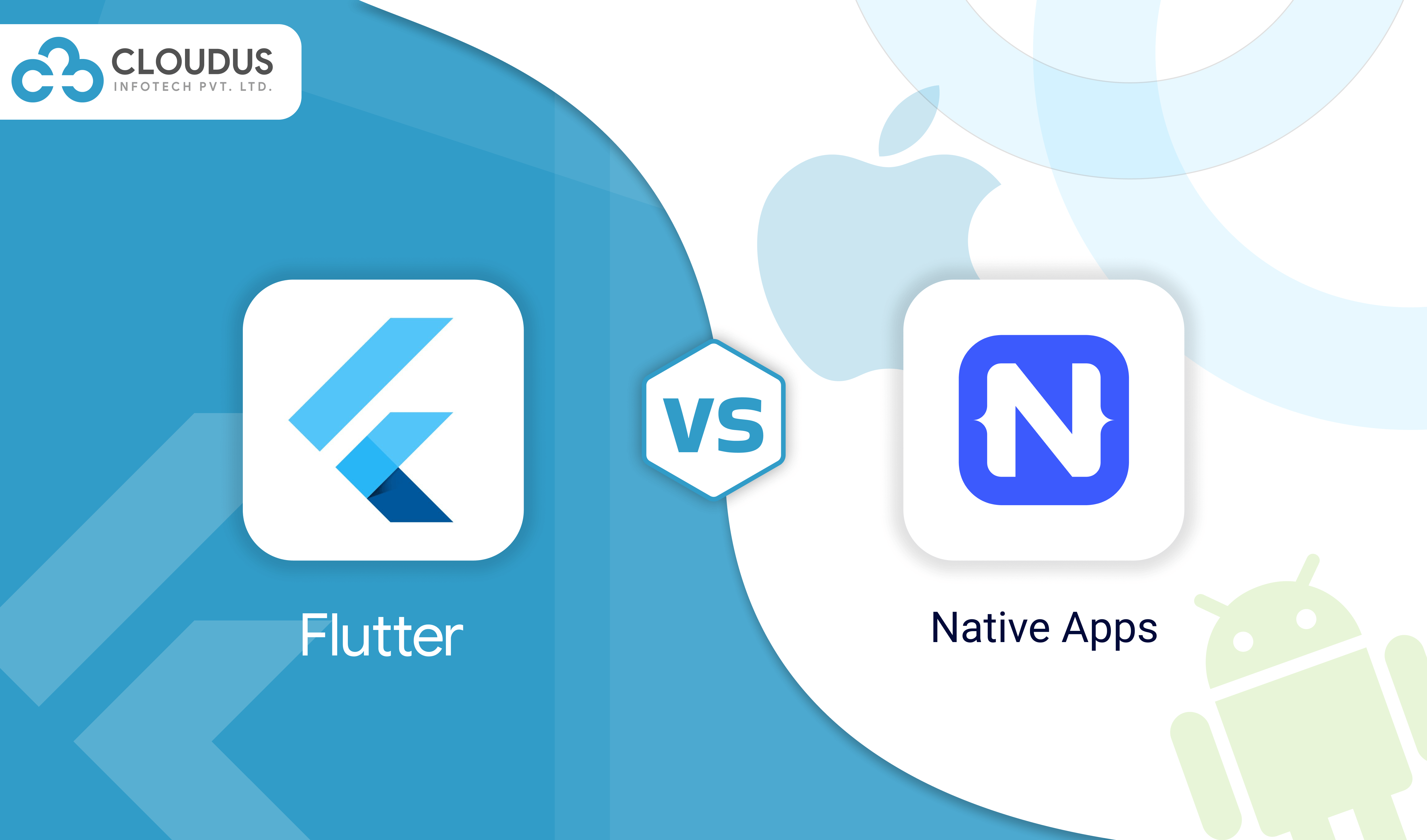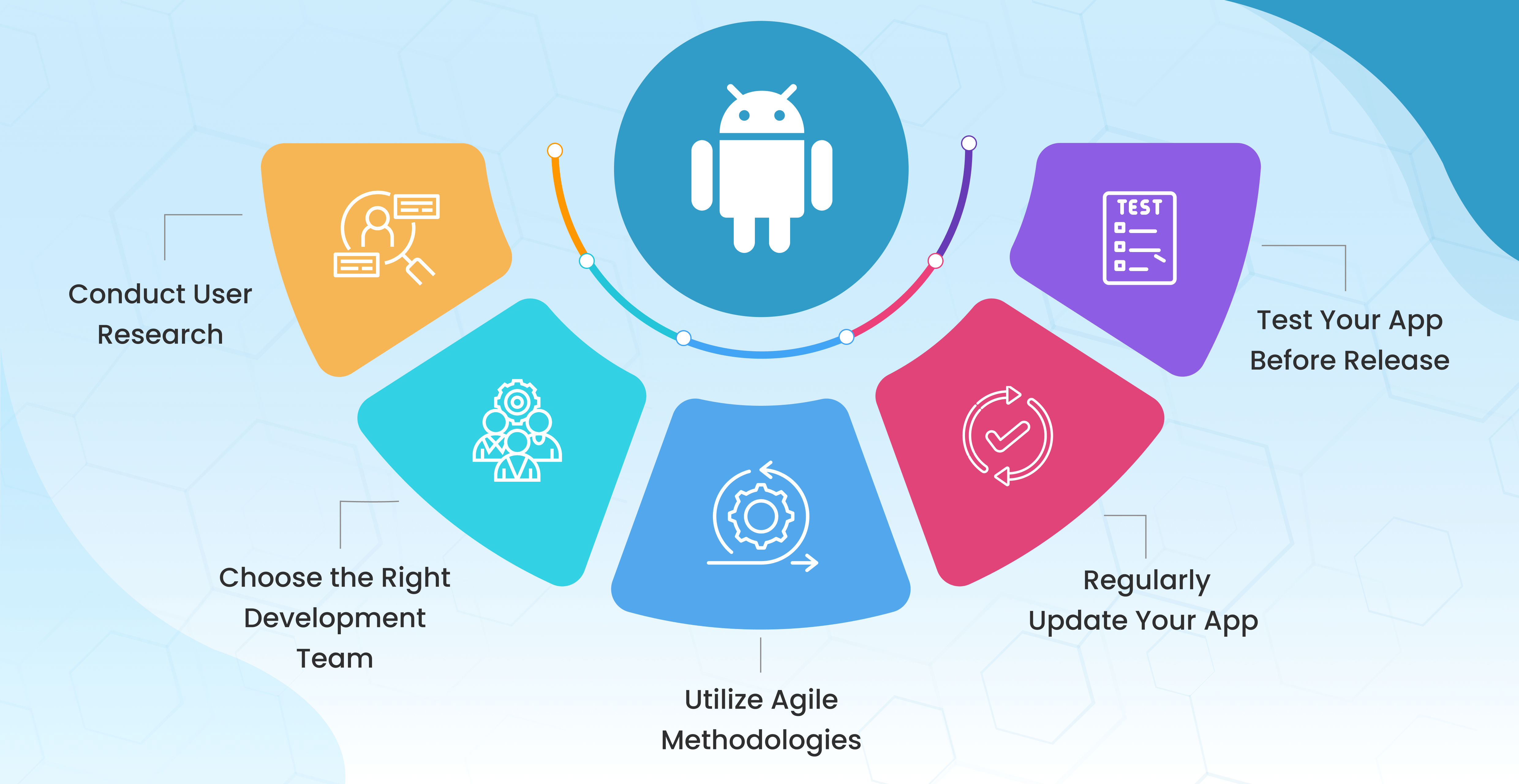
Posted by: Cloudus Infotech Pvt. Ltd.
Table Of Contents
1. Introduction
- 1.1 Explanation of Flutter and native app development
- 1.2 Importance of choosing the right app development framework
- 1.3 Overview of what the article will cover
2. Understanding Flutter and Native App Development
- 2.1 Explanation of Flutter
- 2.2 Explanation of Native App Development
- 2.3 Pros and Cons of Flutter and Native App Development
3. Factors to Consider When Choosing Between Flutter and Native App Development
- 3.1 Time to Market
- 3.2 Performance
- 3.3 User Experience and Design
- 3.4 Development and Maintenance Costs
- 3.5 Platform Support
4. Flutter vs. Native App Development: Which One is Right for Your Project?
- 4.1. Advantages of Flutter for App Development
- 4.2 Advantages of Native App Development
- 4.3 Which one is right for your project?
5. Best Practices for App Development
- 5.1. Conduct User Research
- 5.2 Choose the Right Development Team
- 5.3 Utilize Agile Methodologies
- 5.4 Regularly Update Your App
- 5.5 Test Your App Before Release
6. Conclusion
Introduction
In today's world, mobile applications have become an essential part of our lives. The market is flooded with various options to choose from, and it becomes essential for businesses to provide their customers with a seamless experience. The two most popular app development frameworks in the market are Flutter and Native app development. In this article, we will explore both these frameworks and help you understand which one would be the right choice for your project.
1. Explanation of Flutter and Native App Development:
Flutter is a Google-developed open-source mobile application development framework that allows developers to build cross-platform applications using a single codebase. On the other hand, Native app development involves building applications for specific platforms like Android and iOS using different programming languages and development tools.
2. Importance of Choosing the Right App Development Framework:
Choosing the right app development framework is crucial for businesses as it can have a significant impact on the app's performance, development, and maintenance costs. It can also impact the time to market, user experience, and the ability to scale the app in the future.

3. Overview of What the Article Will Cover:
This article will provide an in-depth understanding of Flutter and Native app development, including their pros and cons. We will explore the factors to consider when choosing between these two frameworks and provide recommendations on which framework would be the right fit for your project. Additionally, we will also discuss the best practices for app development.
Understanding Flutter and Native App Development:
1. Explanation of Flutter:
Flutter is a UI toolkit that allows developers to build visually attractive and fast applications for mobile, web, and desktop platforms. It uses the Dart programming language and provides a wide range of customizable widgets, which makes it easy for developers to create engaging user interfaces.
2. Explanation of Native App Development:
Native app development involves building applications for specific platforms like Android and iOS using platform-specific languages and development tools. This allows for optimal performance and access to native device features.
3. Pros and Cons of Flutter and Native App Development:
Flutter's primary advantage is that it provides developers with a single codebase, which saves time and effort. However, Native app development allows for optimal performance and access to platform-specific features. The choice between these two frameworks largely depends on the project's requirements and the resources available.
Factors to Consider When Choosing Between Flutter and Native App Development:
1. Time to Market:
Flutter allows for faster development and deployment since developers only have to write one codebase, whereas Native app development requires separate codebases for each platform.
2. Performance:
Native app development provides better performance since it uses platform-specific languages and development tools. However, Flutter's performance has improved significantly in recent years.
3. User Experience and Design:
Flutter provides customizable and visually attractive widgets, making it easier to create engaging user interfaces. However, Native app development allows for access to platform-specific design features, which can provide a better user experience.
4. Development and Maintenance Costs:
Flutter allows for cost-effective development and maintenance since developers only have to write one codebase. On the other hand, Native app development can be expensive since it requires separate codebases for each platform.
5. Platform Support:
Flutter supports both Android and iOS, making it easier to develop cross-platform applications. Native app development requires separate codebases for each platform, which can be time-consuming and expensive.
Flutter vs. Native App Development: Which One is Right for Your Project?

1. Advantages of Flutter for App Development:
Flutter provides a faster time to market, cost-effective development and maintenance, and customizable widgets, making it easier to create engaging user interfaces.
2. Advantages of Native App Development:
Native app development allows for access to platform-specific features, which can provide a better user experience and performance.
3. Which one is right for your project?
several factors such as time to market, performance, user experience, design, development and maintenance costs, and platform support. Consider these factors before making a decision.
Best Practices for App Development:

1. Conduct User Research
Conduct User Research: Conduct user research to understand your target audience's needs and preferences. This will help you create an app that meets their requirements and enhances their experience.
2. Choose the Right Development Team
Choose the Right Development Team: Choose a development team with experience in your chosen development framework. This will ensure a smooth development process and a high-quality app.
3. Utilize Agile Methodologies
Utilize Agile Methodologies: Utilize agile methodologies such as Scrum or Kanban to manage the development process effectively. This will help you deliver the app on time and within budget.
4. Regularly Update Your App
Regularly Update Your App: Regularly update your app to enhance its features and fix any bugs or issues. This will help you retain users and improve their experience.
5. Test Your App Before Release
Test Your App Before Release: Test your app thoroughly before release to ensure it's free of bugs and issues. This will help you provide a high-quality app that meets your users' expectations.
Conclusion
1. Recap of Flutter and Native App Development:
This article has provided an in-depth analysis of both Flutter and Native App Development, their advantages and disadvantages, and factors to consider when choosing between them
2. Encouragement to choose the right app development framework based on project requirements:
The right app development framework will depend on several factors, such as time to market, performance, user experience, design, development and maintenance costs, and platform support. Consider these factors carefully before making a decision to ensure the success of your project.
